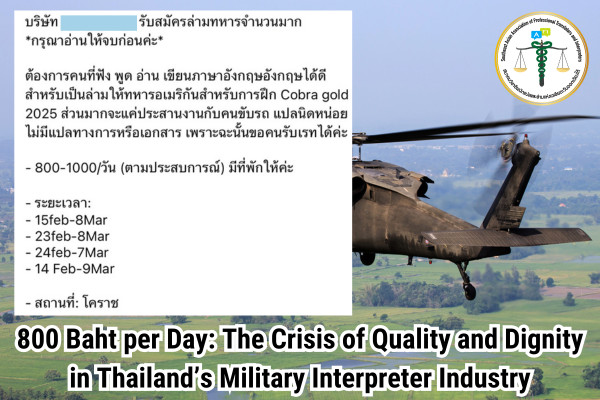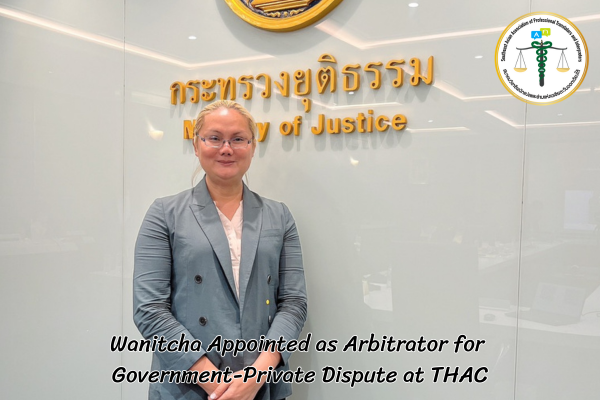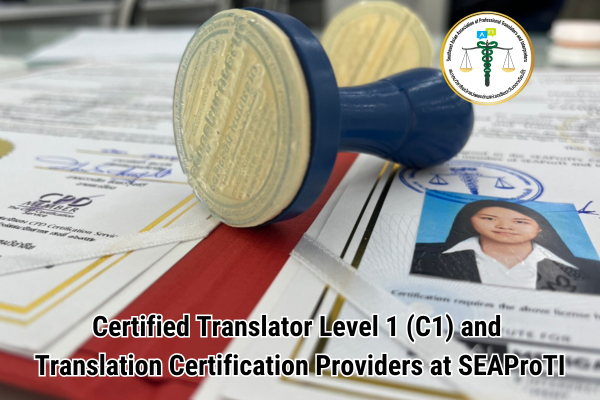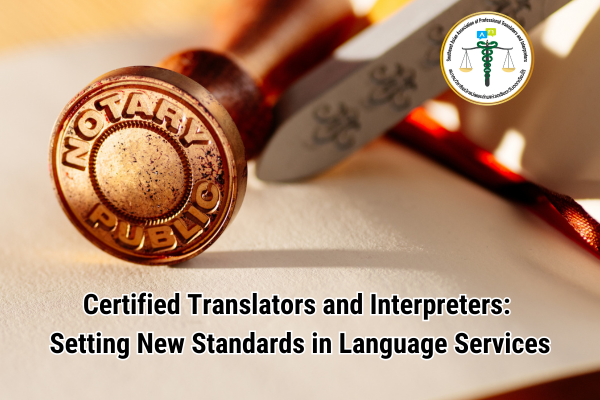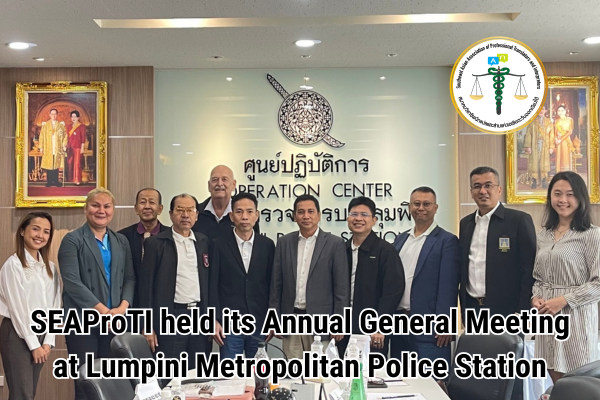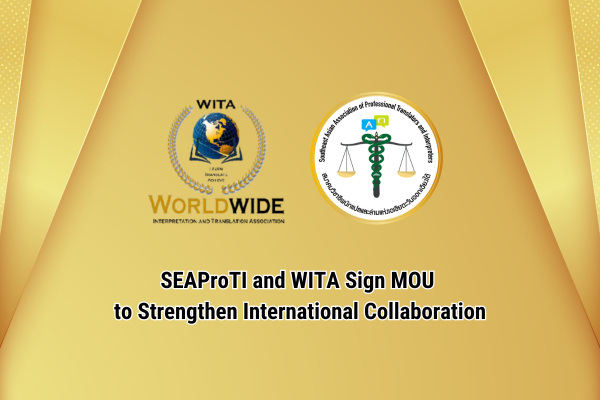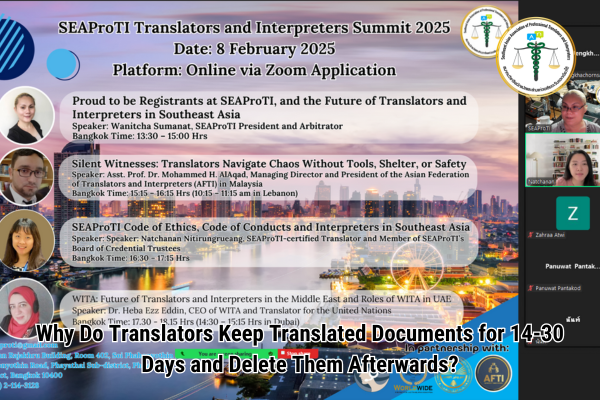800 Baht per Day: The Crisis of Quality and Dignity in Thailand’s Military Interpreter Industry
20 Jan 2025, Bangkok – In recent years, the issue of unreasonably low pay for interpreters in Thailand has become a widely discussed topic. This is particularly evident in high-skill linguistic roles, such as military interpreters for the Cobra Gold training program, which is held annually. The concerning factor is the extraordinarily low daily wage of 800 baht, which is disproportionately low for a job that demands both skill and responsibility.
Why Are Interpreter Wages So Alarmingly Low?
One major factor contributing to the low interpreter rates in this type of work is the bidding system employed by the primary contractors. These contracts, often secured through intermediaries or agencies, focus on the lowest bidder without considering the quality or experience of the interpreters. As a result, the companies that win bids operate on minimal budgets and are forced to cut interpreter wages to maximize profits.
This system not only diminishes the value of interpreting as a profession in the eyes of employers but also creates a negative perception of the profession itself. Interpreters are often viewed as mere “language assistants,” disregarding the expertise and preparation required for the role.
The Overlooked Nature of the Work
While job postings may describe “general coordination duties,” the reality is that interpreters often face diverse and demanding tasks. These range from translating commands during field exercises to facilitating communication in specialized contexts such as medical operations, logistics, or technical coordination.
These duties often take place in challenging environments, including hot and humid weather, physically taxing conditions, and ever-changing demands. Military interpreters are not simply “coordinators” but serve as bridges between cultures, languages, and the overarching objectives of military training.
Challenges Faced by Interpreters
Beyond the low wages, interpreters are often required to bear personal expenses, such as accommodation, food, and transportation. Reports indicate that interpreters sometimes need to arrange and pay for their own lodging, which may be uncomfortable or even unsafe. With these added costs, the net income is barely enough to sustain a living.
Moreover, military interpreting presents unique challenges that may not suit everyone. These include working under high-pressure conditions, dealing with a diverse range of personnel, and adapting to the behaviors and expectations of foreign military staff. Interpreters who lack adaptability or resilience may encounter difficulties in their roles, potentially leading to conflicts or poor performance.
How Does Low Pay Impact the Profession?
The low pay offered for these roles affects not only individual interpreters but also the broader interpreting industry in Thailand. When employers and agencies continue to push rates below acceptable standards, professional interpreters are likely to avoid these roles, leaving them to less experienced individuals.
This can lead to problems such as mistranslations, miscommunications, or a lack of contextual understanding during critical operations. Rather than acknowledging that these issues stem from inadequate pay and hiring practices, employers often blame the interpreters themselves. This creates a damaging cycle that undermines the credibility of the profession as a whole.
Solutions to Address the Problem
To improve the situation, clear standards for interpreter pay and quality must be established. Relevant organizations, such as professional interpreter associations or primary contractors, should play a role in setting fair and reasonable minimum rates while emphasizing the importance of hiring qualified interpreters over merely seeking the lowest costs.
At the same time, interpreters should take a firm stance on fair compensation and avoid accepting work that drastically undervalues their skills. By collectively rejecting underpaid roles, professional interpreters can encourage the market to adjust and recognize the true value of their expertise.
Raising Awareness on a Broader Scale
Public campaigns and outreach efforts through various channels can help raise awareness among employers and society about the importance of interpreters and the value they bring. Communicating that interpreters are not just “people who can speak another language” but highly skilled professionals requiring significant expertise and dedication can help elevate the profession in Thailand.
A Final Note
The daily wage of 800 baht for interpreters in the Cobra Gold program is just one example of systemic issues within Thailand’s interpreting industry. The practice of wage suppression, neglecting quality, and undervaluing the profession is unacceptable in a society that prioritizes development and professionalism. Without timely reform, these problems will continue to erode the quality of work and the sustainability of the profession in the future.
SEAProTI’s certified translators, translation certification providers, and certified interpreters:
The Southeast Asian Association of Professional Translators and Interpreters (SEAProTI) has officially announced the criteria and qualifications for individuals to register as “Certified Translators,” “Translation Certification Providers,” and “Certified Interpreters” under the association’s regulations. These guidelines are detailed in Sections 9 and 10 of the Royal Thai Government Gazette, issued by the Secretariat of the Cabinet under the Office of the Prime Minister of the Kingdom of Thailand, dated July 25, 2024, Volume 141, Part 66 Ng, Page 100.
To read the full publication, visit: the Royal Thai Government Gazette
ค่าแรง 800 บาทต่อวัน: วิกฤตคุณภาพและศักดิ์ศรีในวงการล่ามทหารไทย
20 มกราคม 2568, กรุงเทพมหานคร – ในช่วงไม่กี่ปีที่ผ่านมา ประเด็นเกี่ยวกับเรทค่าจ้างล่ามที่ต่ำเกินมาตรฐานในประเทศไทยกลายเป็นหัวข้อที่ถูกพูดถึงอย่างกว้างขวาง โดยเฉพาะในงานที่ต้องใช้ทักษะทางภาษาอย่างเข้มข้น เช่น งานล่ามทหารในโครงการฝึกซ้อม Cobra Gold ซึ่งจัดขึ้นเป็นประจำทุกปี ความน่าเป็นห่วงคือค่าแรงที่ต่ำอย่างไม่น่าเชื่อสำหรับงานที่ต้องการทั้งความสามารถและความรับผิดชอบสูง โดยในบางปีมีการว่าจ้างล่ามในเรทราคาเพียง 800 บาทต่อวัน
ทำไมค่าแรงล่ามถึงต่ำอย่างน่าใจหาย
หนึ่งในสาเหตุสำคัญที่ทำให้เรทค่าจ้างล่ามต่ำมากในงานลักษณะนี้ มาจากระบบการประมูลงานของผู้ว่าจ้างหลัก ซึ่งในกรณีนี้มักเป็นการประมูลงานผ่านตัวแทนหรือเอเจนซี่ โดยเน้นที่การเสนอราคาต่ำที่สุดโดยไม่สนใจคุณภาพหรือประสบการณ์ของล่าม ส่งผลให้บริษัทที่ชนะการประมูลมีต้นทุนการดำเนินงานต่ำ และจำเป็นต้องลดค่าจ้างของล่ามลงเพื่อให้ได้กำไรสูงสุด
กระบวนการเหล่านี้ไม่ได้เพียงแต่ลดคุณค่าของงานล่ามในสายตาผู้ว่าจ้างเท่านั้น แต่ยังสร้างภาพลักษณ์เชิงลบต่อวงการล่ามในประเทศไทย ผู้ว่าจ้างมองว่าล่ามคือเพียง “คนพอใช้ภาษาได้” โดยไม่ได้เห็นคุณค่าในความเชี่ยวชาญหรือการเตรียมตัวของล่ามที่แท้จริง
ลักษณะงานที่ถูกมองข้าม
แม้ว่าจะมีการระบุว่า “ล่ามในงาน Cobra Gold เป็นงานประสานงานทั่วไป” แต่ในความเป็นจริง ล่ามมักต้องเผชิญกับสถานการณ์ที่หลากหลายและต้องใช้ทักษะการแปลในหลากหลายรูปแบบ ตั้งแต่การแปลคำสั่งในการฝึกซ้อมภาคสนาม ไปจนถึงการช่วยสื่อสารในสถานการณ์เฉพาะทาง เช่น การแพทย์ การขนส่ง หรือการประสานงานด้านเทคนิค
การทำงานเหล่านี้มักเกิดขึ้นในสภาพแวดล้อมที่มีความท้าทาย เช่น สภาพอากาศร้อนชื้น การทำงานในพื้นที่ที่ไม่สะดวกสบาย และการต้องปรับตัวกับความต้องการที่เปลี่ยนแปลงตลอดเวลา ล่ามในงานลักษณะนี้ไม่ใช่แค่ “เจ้าหน้าที่ประสานงาน” แต่ต้องทำหน้าที่เป็นสะพานเชื่อมระหว่างวัฒนธรรม ภาษา และเป้าหมายของการฝึกซ้อมทางทหาร
ความท้าทายที่ล่ามต้องเผชิญ
นอกเหนือจากเรทค่าจ้างที่ต่ำแล้ว ล่ามยังต้องแบกรับภาระค่าใช้จ่ายส่วนตัว เช่น ค่าที่พัก ค่าอาหาร และค่าเดินทางในบางกรณี มีรายงานว่าล่ามบางคนต้องพักในที่พักที่จัดหาเอง ซึ่งบางครั้งอาจไม่สะดวกสบายหรือปลอดภัย การที่ล่ามต้องรับผิดชอบค่าใช้จ่ายเหล่านี้ด้วยตัวเอง ทำให้รายได้ที่ได้รับสุทธินั้นแทบไม่เพียงพอต่อการดำรงชีวิต
นอกจากนี้ งานล่ามทหารยังมีลักษณะเฉพาะที่อาจไม่เหมาะกับทุกคน เช่น การต้องทำงานในสภาพแวดล้อมที่มีแรงกดดันสูง การรับมือกับบุคลากรที่หลากหลาย และการต้องทำงานร่วมกับทหารต่างชาติที่อาจมีทัศนคติหรือพฤติกรรมที่แตกต่างกันออกไป หากล่ามไม่มีทักษะการปรับตัวหรือความยืดหยุ่นเพียงพอ อาจทำให้เกิดปัญหาในงานหรือความขัดแย้งระหว่างบุคคลได้
การลดค่าจ้างส่งผลกระทบต่อวงการล่ามอย่างไร
การจ้างงานในเรทต่ำไม่ได้ส่งผลกระทบเฉพาะต่อล่ามแต่ละคนเท่านั้น แต่ยังส่งผลกระทบต่อภาพรวมของวงการล่ามในประเทศไทย การที่ผู้ว่าจ้างและเอเจนซี่ยังคงผลักดันเรทค่าจ้างที่ต่ำเกินไป อาจทำให้ล่ามมืออาชีพเลือกที่จะหลีกเลี่ยงงานประเภทนี้ ส่งผลให้มีแต่ล่ามที่ไม่มีประสบการณ์หรือขาดทักษะเข้ามาทำงานแทน
เมื่อเกิดปัญหาจากการจ้างล่ามที่ไม่มีคุณภาพ เช่น การแปลผิด การสื่อสารผิดพลาด หรือการขาดความเข้าใจในบริบทของงาน ผู้ว่าจ้างมักไม่ยอมรับว่าเป็นปัญหาจากเรทค่าจ้างที่ต่ำ แต่กลับโทษล่ามที่ไม่มีความสามารถ ซึ่งนำไปสู่ภาพลักษณ์ที่เสียหายต่อวิชาชีพนี้ในสายตาของสังคม
แนวทางแก้ไขปัญหา
เพื่อปรับปรุงสถานการณ์นี้ ควรเริ่มจากการสร้างมาตรฐานที่ชัดเจนเกี่ยวกับค่าจ้างและคุณภาพของล่าม หน่วยงานที่เกี่ยวข้อง เช่น สมาคมวิชาชีพล่ามหรือผู้ว่าจ้างหลัก ควรมีบทบาทในการกำหนดเรทค่าจ้างขั้นต่ำที่เหมาะสมและยุติธรรม รวมถึงการส่งเสริมการให้ความสำคัญกับคุณภาพงานล่ามแทนการมองหาค่าใช้จ่ายที่ต่ำที่สุด
ในขณะเดียวกัน ล่ามเองก็ควรมีจุดยืนที่ชัดเจนเกี่ยวกับค่าจ้างที่เหมาะสม และหลีกเลี่ยงการรับงานที่กดราคาจนต่ำเกินไป การที่ล่ามมืออาชีพเลือกที่จะไม่รับงานในเรทต่ำ อาจช่วยกระตุ้นให้ตลาดเริ่มปรับตัว และเห็นคุณค่าในทักษะของล่ามมากขึ้น
การสร้างความตระหนักรู้ในวงกว้าง
การรณรงค์ผ่านสื่อและช่องทางต่าง ๆ เพื่อให้สังคมและผู้ว่าจ้างตระหนักถึงความสำคัญของงานล่าม และคุณค่าที่แท้จริงของการมีล่ามที่มีคุณภาพ อาจช่วยเปลี่ยนแปลงทัศนคติและพฤติกรรมของตลาดได้ในระยะยาว การเน้นย้ำว่าล่ามไม่ใช่แค่ “คนพอใช้ภาษาได้” แต่เป็นผู้เชี่ยวชาญที่ต้องมีความรู้ ความสามารถ และความทุ่มเทในระดับสูง อาจช่วยยกระดับวิชาชีพล่ามในประเทศไทยได้
บทส่งท้าย
ค่าแรง 800 บาทต่อวันสำหรับงานล่ามในโครงการ Cobra Gold เป็นเพียงตัวอย่างหนึ่งที่สะท้อนถึงปัญหาเชิงโครงสร้างในวงการล่ามของประเทศไทย การกดค่าจ้าง การละเลยคุณภาพ และการมองข้ามคุณค่าของวิชาชีพนี้เป็นเรื่องที่ไม่ควรเกิดขึ้นในสังคมที่ให้ความสำคัญกับการพัฒนาและความเป็นมืออาชีพ หากไม่มีการเปลี่ยนแปลงในเร็ว ๆ นี้ ปัญหาเหล่านี้อาจส่งผลกระทบต่อคุณภาพของงานและความยั่งยืนของวิชาชีพในอนาคต
เกี่ยวกับนักแปลรับรอง ผู้รับรองการแปล และล่ามรับรองของสมาคมวิชาชีพนักแปลและล่ามแห่งเอเชียตะวันออกเฉียงใต้
สมาคมวิชาชีพนักแปลและล่ามแห่งเอเชียตะวันออกเฉียงใต้ (SEAProTI) ได้ประกาศหลักเกณฑ์และคุณสมบัติผู้ที่ขึ้นทะเบียนเป็น “นักแปลรับรอง (Certified Translators) และผู้รับรองการแปล (Translation Certification Providers) และล่ามรับรอง (Certified Interpreters)” ของสมาคม หมวดที่ 9 และหมวดที่ 10 ในราชกิจจานุเบกษา ของสำนักเลขาธิการคณะรัฐมนตรี ในสำนักนายกรัฐมนตรี แห่งราชอาณาจักรไทย ลงวันที่ 25 ก.ค. 2567 เล่มที่ 141 ตอนที่ 66 ง หน้า 100 อ่านฉบับเต็มได้ที่: นักแปลรับรอง ผู้รับรองการแปล และล่ามรับรอง


